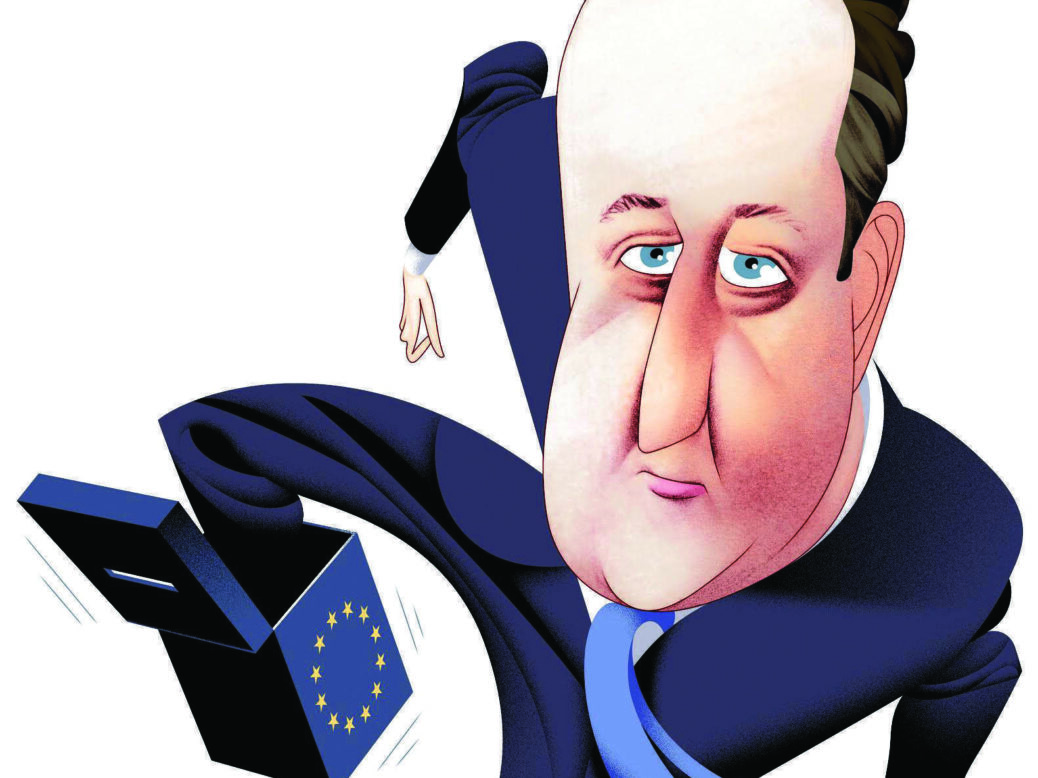
David Cameron enjoys a rare distinction: the only prime minister to call a referendum – on a matter of supreme national importance – and then lose it. For this act of hubris, Cameron rightly resigned.
But after more than two years spent writing his memoirs in a luxury shed, the former prime minister is reportedly “bored shitless”. Yet rather than, say, taking up a musical instrument, or ploughing through the collected works of Proust, Cameron is said to have his sights on a bigger prize: the Foreign Office.
The Sun’s political editor Tom Newton Dunn, a reliable source of Cameroon Kremlinology, reports that the former PM “has told friends he is mulling a return to frontline politics, and fancies being foreign secretary”.
Now, admittedly, after the Lilliputian reign of Boris Johnson, it’s not unreasonable for anyone to aspire to lead the Foreign Office. But it would still take a special arrogance for Cameron to believe that he is the man for the job.
History will remember him for little more than Brexit – who now speaks of “the big society”? – but this is merely one of Cameron’s blunders. As prime minister in 2010, it was him, not George Osborne, who made the ultimate decision to impose the austerity that strangled growth and enfeebled the public realm.
Rough sleeping, which fell by three-quarters under the last Labour government, has risen by 169 per cent since 2010. Nearly 1,000 Sure Start children’s centres and 478 libraries are estimated to have closed. Again, so much for “the big society”.
Wherever one looks – the economy (the longest fall in living standards since the Napoleonic wars), the NHS (still recovering from the coalition’s reckless “reorganisation”), the prison system (understaffed and overwhelmed), local government (shrunken councils strugglig to meet their legal duties) – the baleful legacy of the Cameron administration is clear.
At the Foreign Office, Cameron, mercifully, would have little sway over domestic policy. But his qualifications for this alternative role are hardly stronger. When Cameron became Conservative leader in 2005, he told aides of foreign policy: “Look, this is an area where I need help.” And so it proved.
Cameron became the first prime minister since Lord North in 1782 to lose a vote on a matter of peace and war after failing to make a compelling case for military action in Syria. In the case of Libya, where the UK did intervene, the Foreign Affairs Select Committee ruled in 2016 that Cameron bore much responsibility for the country’s collapse into civil war. “Through his decision-making in the national security council, former prime minister David Cameron was ultimately responsible for the failure to develop a coherent Libya strategy,” it concluded.
In the European sphere, Cameron heedlessly pandered to Tory Europhobia. He withdrew the Conservatives from the mainstream centre-right EU grouping, aligning his party with assorted far-right nationalists and xenophobes.
Though the pledge helped him secure the Tory leadership in 2005, centre-right leaders were appalled by his opportunism and moral relativism. Angela Merkel, the “auntie” who Cameron hoped would come to his rescue during the Brexit negotiations, felt no compulsion to do so. And when he desperately campaigned for Remain in 2016 – having long derided Brussels as a bureaucratic ogre – few sceptics were prepared to believe him.
Once asked why he wanted to become prime minister, Cameron replied “because I think I’d be good at it”. In his desire to become foreign secretary, this toxic combination of complacency and arrogance has once again asserted itself.






